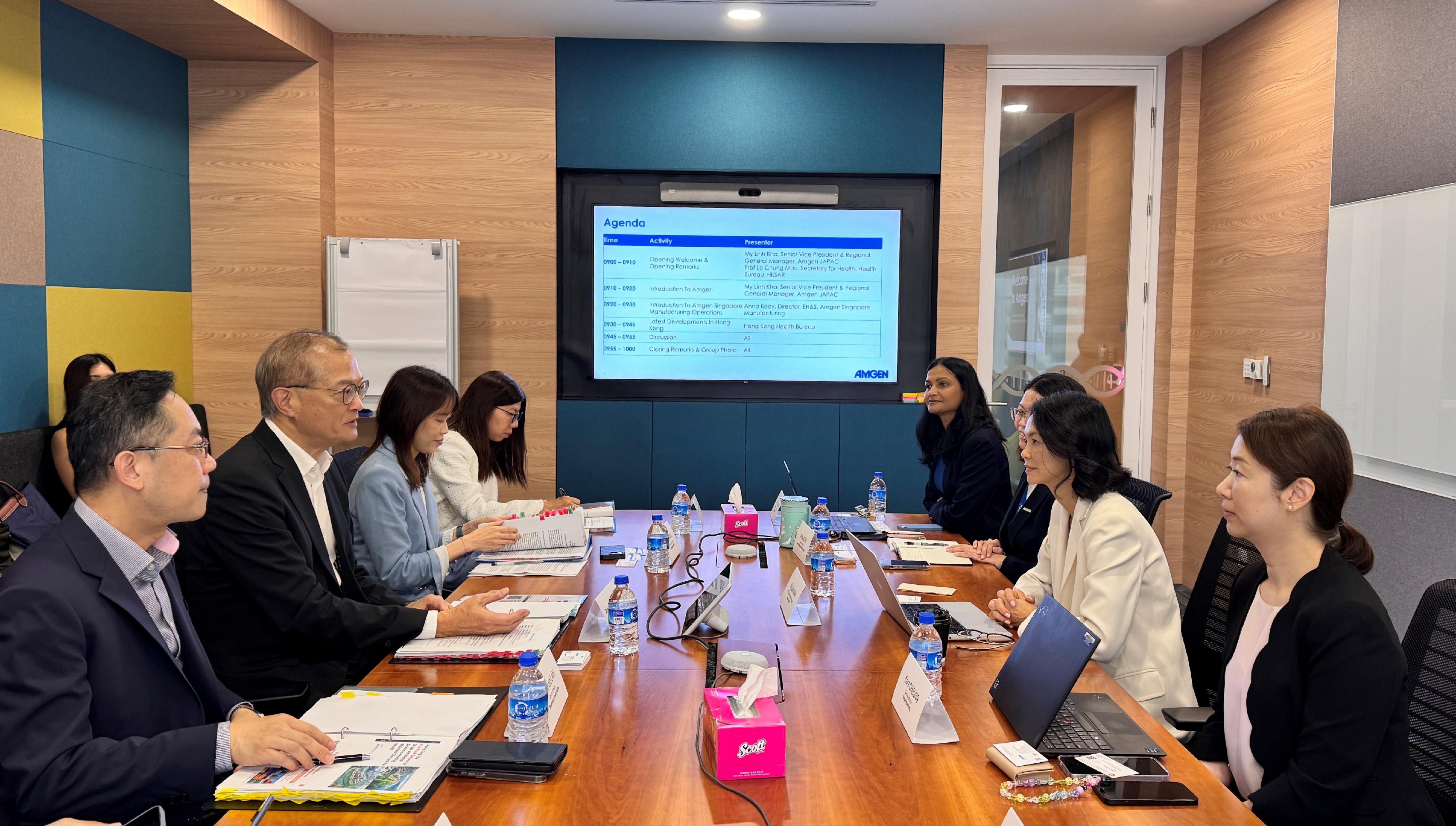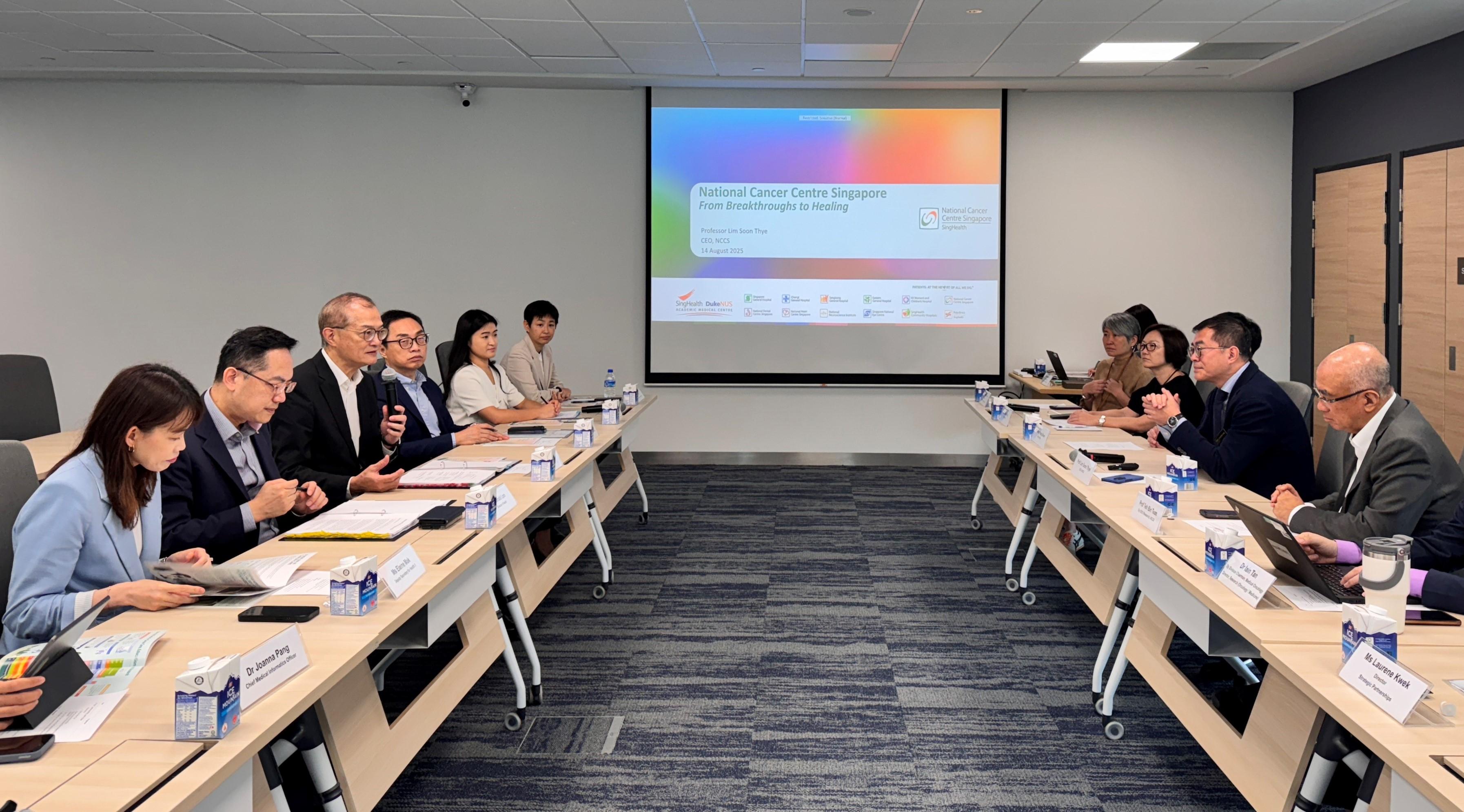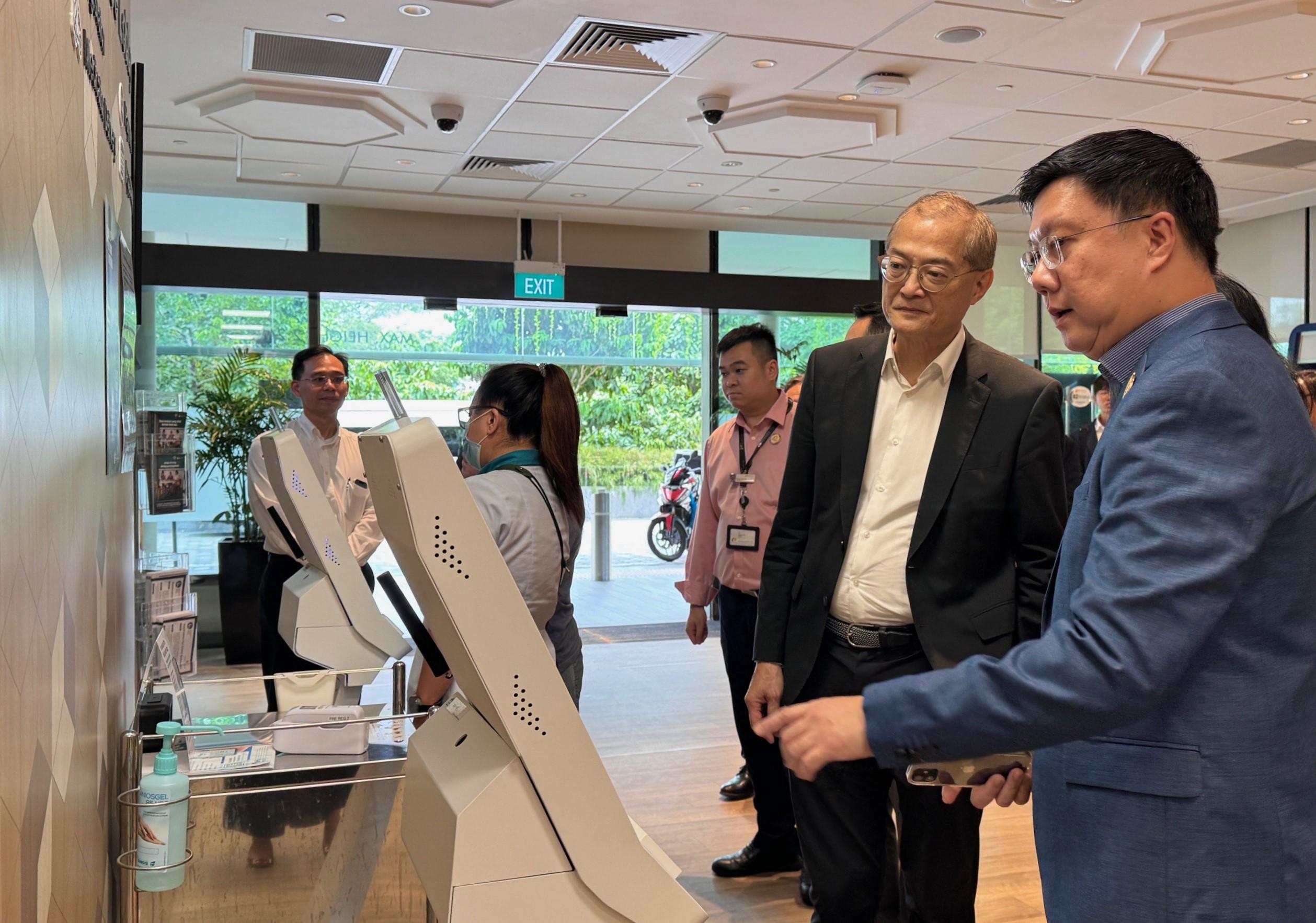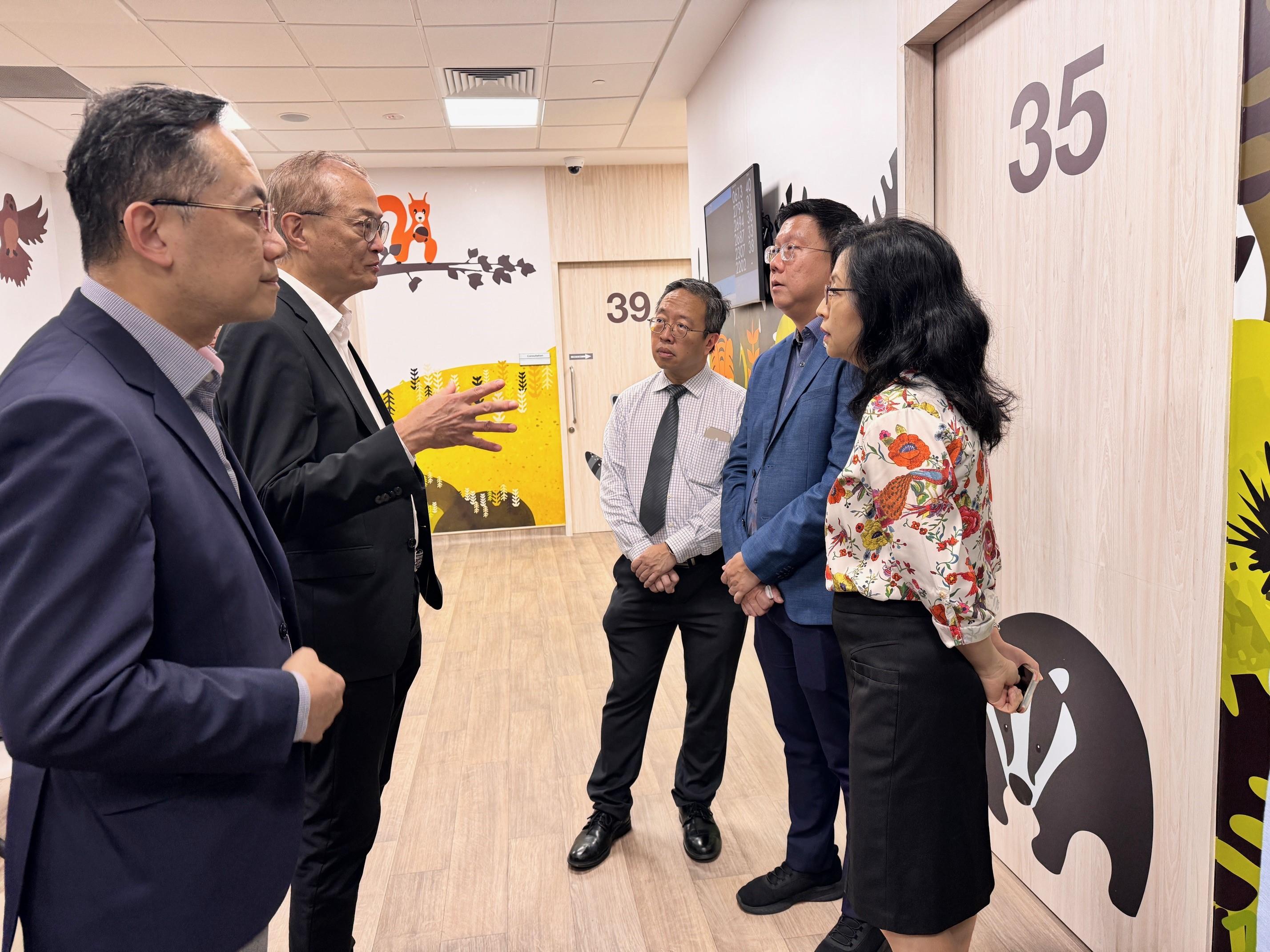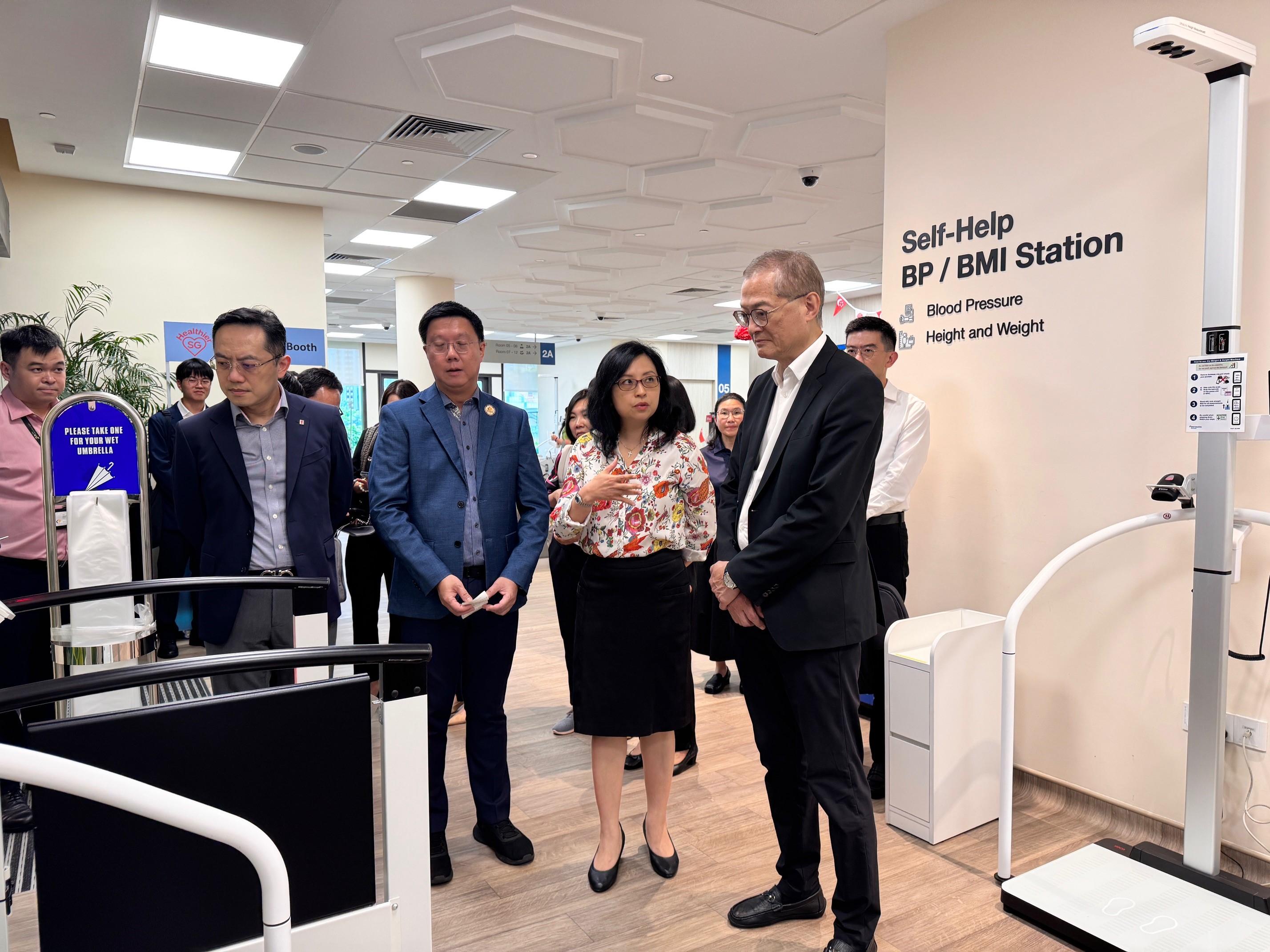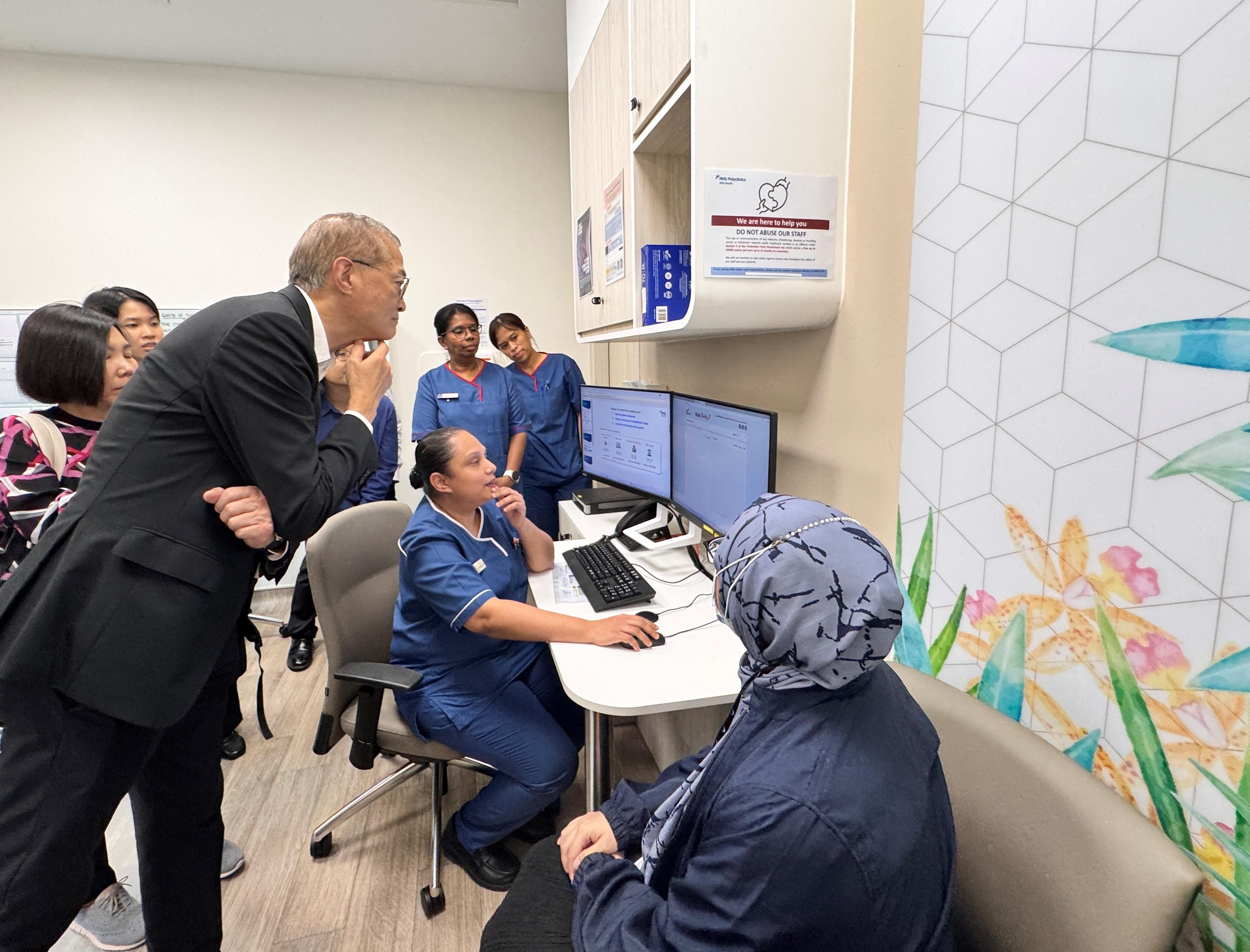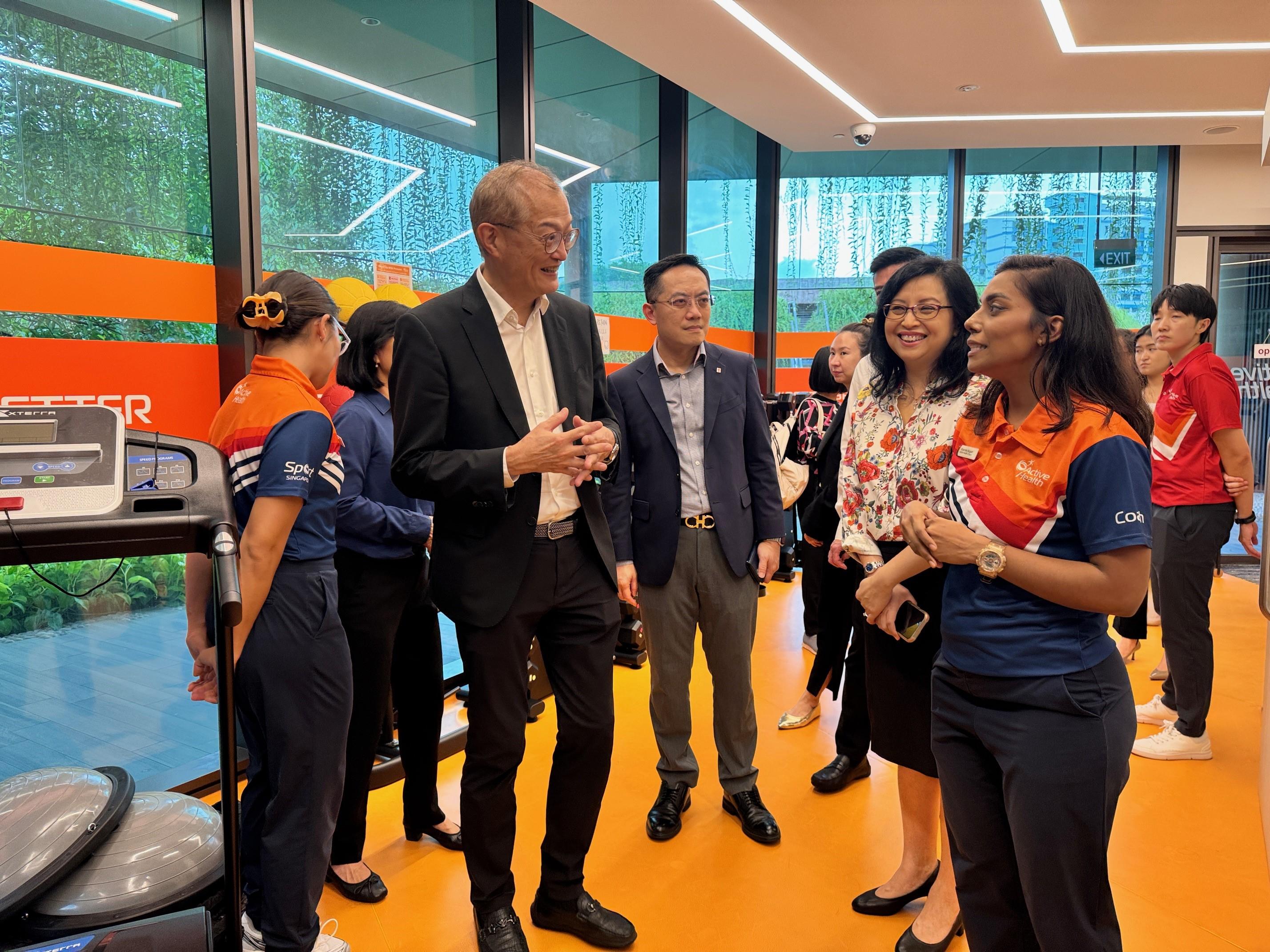Secretary for Health concludes visit to Singapore (with photos)
***************************************************************
During the visit to Amgen Biotechnology Singapore this morning, the delegation introduced various key measures for Hong Kong's development as an international health and medical innovation hub, including expediting the reform of the approval mechanism for drugs and medical devices, enhancing Hong Kong's clinical trial capability on all fronts and facilitating the translation of innovative biomedical research results into clinical applications. Professor Lo emphasised, "Hong Kong will continue to leverage its international advantages to actively promote the research and development (R&D) and application of biomedical technologies. Through the establishment of the Hong Kong Centre for Medical Products Regulation and the Greater Bay Area International Clinical Trial Institute, we will further improve the mechanisms for new drug R&D and approval, attracting global top-notch innovative enterprises and R&D organisations to set up operations in Hong Kong. These measures will not only accelerate patient access to advanced treatments but also solidify Hong Kong's position as an international health and medical innovation hub."
Professor Lo encouraged overseas pharmaceutical companies to make good use of the "1+" mechanism for the approval of new drugs, and "primary evaluation" for new drug registration, which will be rolled out in phases starting next year, to introduce newly developed drugs into Hong Kong to meet local healthcare needs. He also welcomed overseas pharmaceutical companies to conduct clinical trials in Hong Kong, fully leveraging the multiple unique advantages of Hong Kong to facilitate the translation and clinical application of advanced biomedical technologies.
The delegation also visited the National Cancer Centre Singapore this morning and introduced the work of the Hong Kong Special Administrative Region (HKSAR) Government in cancer prevention, screening, diagnosis and treatment. Professor Lo said, "Hong Kong has established the Cancer Coordinating Committee to formulate strategies on cancer prevention and control as early as 2001, and launched the Hong Kong Cancer Strategy in 2019, with a view to reducing the cancer burden on Hong Kong through setting work priorities and directions. Addressing cancer encompasses education, prevention and screening, surveillance, research, treatment, etc. For instance, on prevention and screening, the Government has rolled out the Cervical Screening Programme, the Colorectal Cancer Screening Programme and the Breast Cancer Screening Pilot Programme (BCSPP) based on recommendations from experts. The Government is formulating risk-based screening programmes for prevalent cancers on a gradual basis, including the BCSPP Phase II that has been rolled out and the hepatitis B screening programme to be launched by the Primary Healthcare Commission to reduce the risk of complications, such as liver cancer, of people infected with hepatitis B virus. The Government is also exploring the feasibility of using artificial intelligence to assist lung cancer screening to further enhance cancer prevention."
In the afternoon, Professor Lo visited the National Healthcare Group Sembawang Polyclinic for an in-depth exchange on primary healthcare services in Hong Kong and Singapore with the senior personnel of the polyclinic. He said, "Hong Kong is actively taking forward a major reform of its primary healthcare system to address the challenges posed by an ageing population and the increasing prevalence of chronic diseases. Based on the principle of 'prevention-focused and community-based', the HKSAR Government aims to build a sustainable healthcare system and fully enhance the health outcomes of citizens through systematic early intervention and co-ordinated care. In particular, we are promoting the 'Family Doctor for All' concept, strengthening the District Health Centre network across Hong Kong, and implementing the Chronic Disease Co-Care Pilot Scheme that subsidises eligible citizens to undergo screening for diabetes mellitus, hypertension and blood lipid and follow-up treatment, to achieve the objectives of 'early prevention, early identification and early treatment'. I look forward to jointly exploring best practices in primary healthcare with the health authorities of Singapore, with a view to promoting sustainable healthcare development in the Asia-Pacific region."
Members of the delegation include the Director of Health, Dr Ronald Lam, Deputy Secretary for Health Ms Elaine Mak, and a representative from the Hospital Authority. They concluded the visit today and will return to Hong Kong this evening.
Ends/Thursday, August 14, 2025
Issued at HKT 17:34
Issued at HKT 17:34
NNNN





